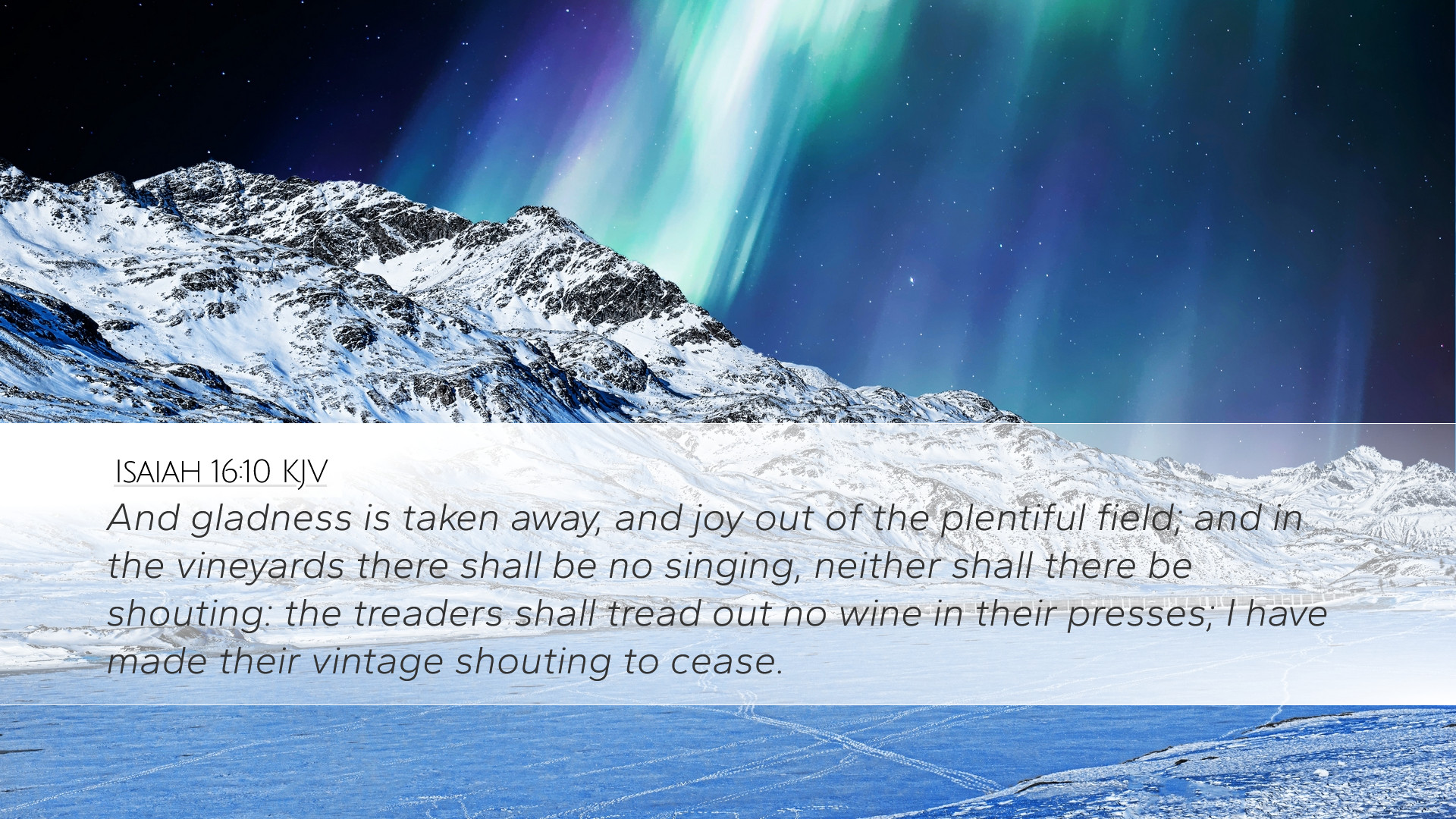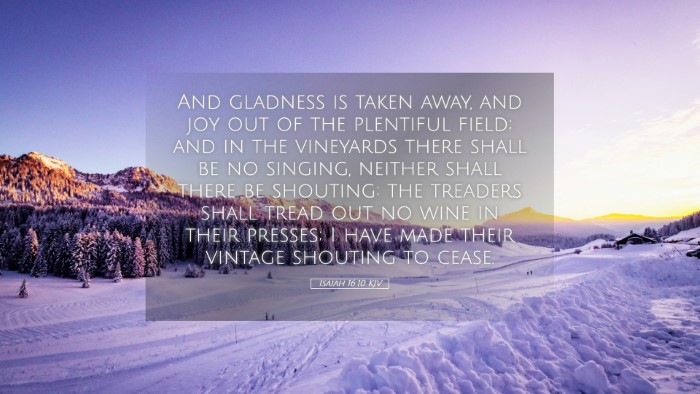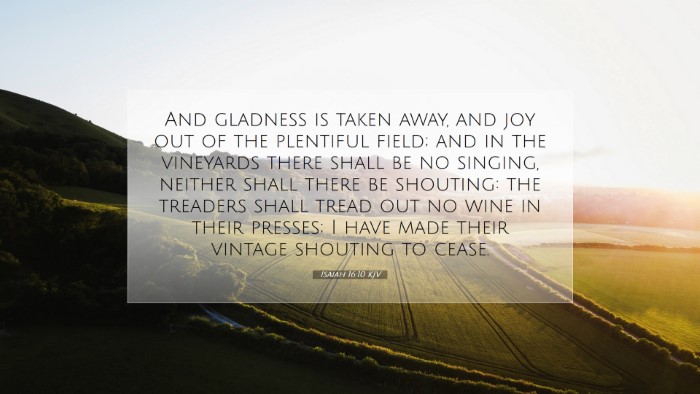Commentary on Isaiah 16:10
Verse Analysis: Isaiah 16:10 states, "And gladness is taken away, and joy out of the plentiful field; and in the vineyards there shall be no singing, neither shall there be shouting: the treaders shall tread out no wine in their presses; I have made their vintage shouting to cease." This verse reflects a profound sense of loss and desolation, particularly in the context of agricultural abundance, a predominant theme in ancient Near Eastern cultures.
Contextual Background
This passage is situated within a broader context of prophecies concerning Moab, a nation often noted for its pride and ultimately its downfall. It appears amidst themes of judgment and lamentation, mirroring the destitute state that arises from divine disfavor.
Historical Significance
Understanding the agricultural backdrop of Israel and Moab is crucial. Vineyards and fields were not only critical to the economy but also symbolic of God’s blessings. The absence of rejoicing in the vineyards indicates a severe spiritual and physical desolation.
Thematic Insights
- The Loss of Joy: The cessation of joy and gladness is emphasized throughout the verse. According to Matthew Henry, “joy is the strength of every people; when that is gone, all is gone.” It serves to highlight the impact of judgment not only on the land but also on the spirit of its people.
- Desolation in Abundance: Albert Barnes notes that even in times of plenty, the people's joy can be stripped away. The vineyards, usually a source of pleasure and celebration, become silent, reflecting a divine judgment that transforms their prosperity into emptiness.
- Faith and Expectation: Adam Clarke reflects on the implications of this judgement. He highlights that the absence of singing and shouting in vineyards represents a deeper spiritual crisis where faith is drowned in despair, reminding believers of the precariousness of their joy amidst societal upheaval.
Theological Reflections
This verse poses profound theological implications. It invites reflection on the nature of God’s relationship with His people. The loss of joy aligns with the biblical narrative where blessings are contingent upon faithfulness to God. The absence of harvest-related celebrations indicates a rupture between God and His covenant people.
Spiritual Implications
From a spiritual standpoint, this verse underscores the importance of recognizing divine oversight in human affairs. As noted by Clarke, when joyous festivals cease, it serves as a stark reminder for believers to evaluate their spiritual condition and alignment with God’s will. The absence of music and celebration signifies a void that only repentance and restoration can fill.
Application for Today’s Believer
- Understanding Divine Judgment: Modern readers can find relevance in the themes of prophetic warnings against complacency and pride. Isaiah’s words resonate with contemporary issues where societies elevate pride over humility.
- Restoration of Joy: This passage encourages believers to seek restoration when they experience spiritual desolation. Recognizing that joy is rooted in a right relationship with God prompts a return to faithfulness.
- The Role of Community: The collective nature of worship, as evidenced by the vineyards and harvest celebrations, reminds congregations of the importance of community in sustaining joy through shared faith experiences.
Conclusion
Isaiah 16:10 serves as a poignant reminder of the fragility of human happiness and the profound impact that divine judgment can have on a community. By engaging with this verse, pastors, theologians, and students of the Word are called to a deeper understanding of the interplay between divine grace and human responsibility. In a world where joy can be fleeting, the faithful are beckoned to cultivate a steadfast relationship with God, ensuring that their vineyards — both literal and spiritual — remain filled with joy and gladness.


